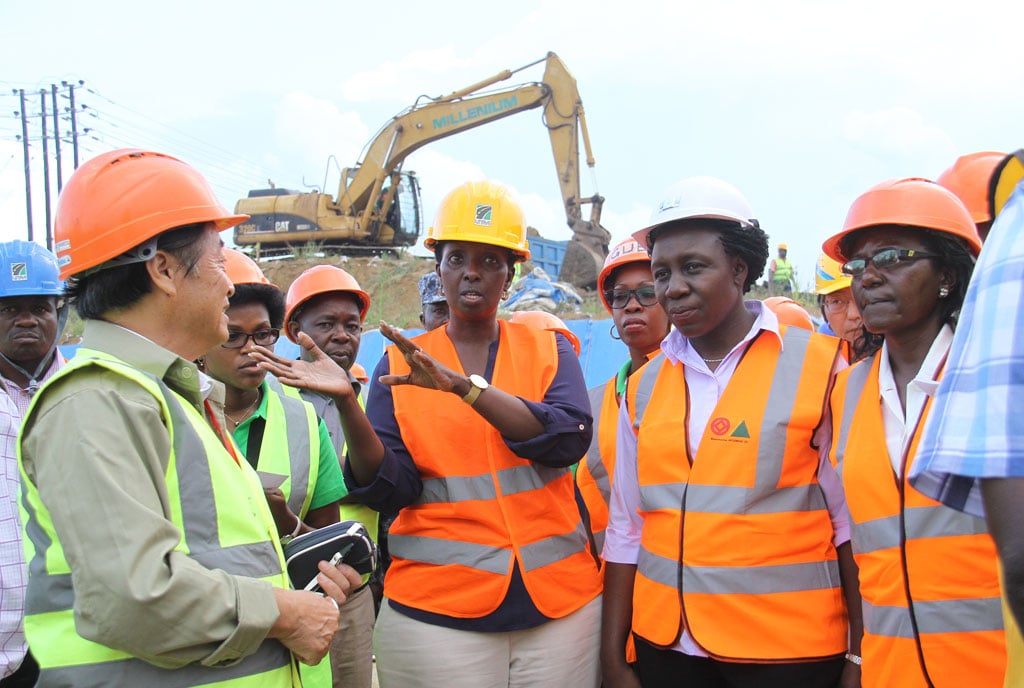Fate of meteorology staff in the balance after merger

UNMA Executive Director Bob Alex Ogwang addresses journalists at the Uganda Media Centre in Kampala recently. PHOTO/COURTESY
What you need to know:
- Parliament on April 17 passed several laws, including the Uganda National Meteorology Authority (UNMA) Amendment Law, 2024, that saw the dissolution of several state agencies.
The fate of 197 staff of the Uganda National Meteorology Authority (UNMA) hangs in the balance after President Museveni signed into law an Act of Parliament dissolving it and putting its functions back to the Ministry of Water and Environment.
UNMA Executive Director Bob Alex Ogwang said the staff not sure of their jobs include graduate trainees, those with permanent contracts, and those from the former Department of Meteorology in the ministry.
He said the details about who will exactly be affected by the merger are not yet known “because we have not received the signed law and neither have we heard from our mother ministry or the one of Public Service,”
Mr Ogwang explained that their job assignments are interrelated and losing some staff will affect the generation of accurate weather information.
“We have weather observers in the field who collect data then send it to the central point where data is processed, forecasts are developed, then communicators issue it. We have the briefing office that briefs pilots in Entebbe; we have explained to Public Service and I know they will consider it,” he said.
“We have specialised weather information for aviation, for planes taking off, landing and flying over the country. There is a new airport that is going to be commissioned in 2025 and public service has also approved 36 staff recruited for that airport, so we hope they will handle it accordingly as we encourage our staff to be remain calm and productive,” he added.
UNMA was established in 2012 by an act of Parliament and mandated, among others, to provide meteorological and climatological services to weather-dependent sectors in the country.
Parliament on April 17 passed several laws, including the Uganda National Meteorology Authority (UNMA) Amendment Law, 2024, that saw the dissolution of several state agencies.
Despite pleas by legislators on the Environment and Natural Resource Committee to retain the autonomous status of UNMA, Parliament passed the UNMA Amendment Law, 2024, and its approval by President Museveni will see the authority dissolved.
The committee chairperson, Mr Emmanuel Otaala, said dissolving UNMA will hurt weather forecast and the climate change fight in the country.
He also said UNMA may lose its International Standard Organisation (ISO) 9001:2015 certification as a result.
ISO 9001 certification is an international standard that specifies quality management systems requirements.
Mr Ogwang emphasised the significance of the certification.
“It is not very easy to maintain that standard, when, for example, there are bureaucracies in the system because there are moments where certain equipment should not fail for even a minute. Maintenance of ISO certification is crucial in air navigation...,” he said.
The World Meteorological Organisation (WMO) mandates meteorological bodies to be either autonomous or semi-autonomous to enable the provision of more efficient and effective services for disaster risk reduction, environment protection, and building resilience to adverse impacts of climate change.
According to officials, Uganda is a signatory to different international bodies, including the WMO Convention, the Chicago Convention, the African Ministerial Conference on Meteorology (Amcomet), and the East African Treaty, which all unanimously resolved that national meteorological bodies should become semi-autonomous.
When contacted, the State Minister for ICT and National Guidance, Mr Godfrey Baluku Kabyanga, called for calm.
“I believe that the Ministry of Internal Affairs and the Attorney General will handle any challenges that will arise. I don’t know what these treaties say but the Attorney General and the Ministry of Internal Affairs are going to see how those protocols will be handled,” he said.
“The Meteorological Authority is still alive and will function and it won’t lose autonomy because the autonomy was given to it by the government, so there shouldn’t be any worry,” he added.
UNMA budget
UNMA is currently operating on a Shs16.4b budget which was downsized from Shs17.6b in the 2022/2023 financial year. The Shs16.4 budget is shared among five sub-programmes; applied meteorology, data and climate services, finance and administration, forecasting services, station networks and observations, training and research, and retooling.
The authority is spending the funds on other budget items such as wages and salaries, communications, utilities, supplies, insurance and licences, travel and transport.
Additional reporting by
Priscilla Maloba




